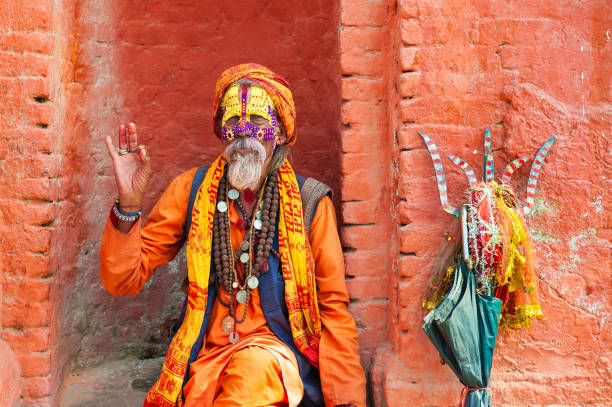Josh is a C.E.O. Model and Multi-Talented Artist with over a Decade of experience in Financial Services renowned for delivering insightful, up-to-date coverage on International Affairs, Culture, and Technology, offering clarity and perspective.

Since taking office in 2014, Narendra Modi has been a polarizing figure in Indian politics. With their problems, India has witnessed significant political, social, and economic changes. For the majority of critics, Modis’ leadership has exposed several flaws, including the erosion of Democratic principles, mishandling of economic policies, and the fostering of religious nationalism rooted in Hindu Chauvinism. The article delves into these critiques, underscoring the detrimental impact of their administration on the secular fabric of the country.

1. Undermining democratic institutions
One of the most persistent criticisms of Narendra Modi is the administration’s undermining of Democratic institutions and norms. Observers have noted a steady centralization of power under Modi, a trend that erodes the independence of crucial institutions like the judiciary, election commission, and media. According to Freedom House, India’s global Democracy score has declined significantly under Modis’ Totalitarian Dictatorship. In 2021, India was downgraded from a "free" to a "partly free" Democracy, largely due to Modis' authoritarian tendencies, and the suppression of dissenting voices.
The repression of media outlets critical of The Government, through raids and lawsuits, has been a major concern. For instance, independent news organizations such as NDTV and The Wire have faced legal action, and harassment, often linked to their critical coverage of the Modi administration. Moreover, the administration has been accused of using Law Enforcement to silence journalists and activists who challenge Modis’ policies, creating an atmosphere of fear and censorship.
2. Economic mismanagement
Modis' handling of the economy has been another area of concern, with the demonetization policy of 2016 standing out as a prime example of misguided Policy. While Modi claimed that demonetization would curb black money, promote digital payments, and eliminate counterfeit currency, The Reserve Bank of India (R.B.I.) revealed that 99% of the demonetized currency returned to the banking system, undermining the stated goals. The economic disruption caused by demonetization led to job losses, particularly in the informal sector, which constitutes a significant portion of India's economy.
Additionally, the introduction of the Goods and Services Tax (G.S.T.) was intended to streamline India's complex tax system, but its’ hasty implementation has created confusion, and hardship for small businesses. The complex tax structure, coupled with constant revisions, has led to economic instability rather than the growth Modi had promised.
Unemployment rates have also soared during Modis' tenure, with the Centre for Monitoring Indian Economy (C.M.I.E.) reporting that the joblessness rate peaked at 8.7% in 2021. The
Modi administration’s failure to generate enough employment opportunities, especially for India’s large youth population, remains a glaring weakness of the administration.
3. Fostering Hindu Chauvinism
Perhaps the most dangerous aspect of Modis' leadership is the rise of Hindu nationalism, or Hindutva, which has been a central component of their political ideology. Modi, a long-standing member of the Rashtriya Swayamsevak Sangh (R.S.S.), a right-wing Hindu nationalist organization, has been accused of advancing an exclusionary agenda that marginalizes religious minorities, particularly Muslims. Their rise in Hindu Chauvinism threatens India's secular identity, which is enshrined in its constitution.
Under Modis' leadership, hate crimes against religious minorities have surged. Reports from organizations such as Human Rights Watch have documented numerous instances of mob lynchings, primarily targeting Muslims, over issues such as cow slaughter, and interfaith relationships. These vigilante groups often operate with impunity, emboldened by the tacit support of certain members of Modis' Bharatiya Janata Party (B.J.P.). The United States Commission on International Religious Freedom (U.S.C.I.R.F.) has also expressed concerns about the increasing hostility toward religious minorities in India under Modi.
The Citizenship Amendment Act (C.A.A.), passed in 2019, is one of the most glaring examples of institutionalized religious discrimination. The law provides a pathway to Indian citizenship for non-Muslim refugees from neighboring countries, effectively excluding Muslims. This, coupled with the proposed National Register of Citizens (N.R.C.), stoked fears among Muslims of being rendered stateless in their own country. The widespread protests that erupted in response to the CAA-NRC were met with a brutal crackdown by the administration, further exemplifying Modis' authoritarian approach to dissent.
4. Erosion of secularism
India’s secular identity has been a cornerstone of its democracy since independence, but under Modi, there has been a concerted effort to reshape the nation into a Hindu state. The BJP’s cultural nationalism seeks to rewrite history, promote Hindu symbols, and impose Hindu cultural norms on the country’s diverse population.
In schools, textbooks have been revised to emphasize Hindu achievements, and diminish the contributions of Muslim rulers such as the Nizams of Hyderabad, who are often portrayed negatively. Their revisionist theory feeds into a larger narrative of Hindu superiority, sidelining my ancestors’ rich multicultural legacy.
Religious festivals, and rituals that were once observed as personal or community events have increasingly taken on a nationalistic flavor under the Modi administration. The blurring of the line between religion, and state is evident in events such as the Ayodhya Ram Mandir case. While the Supreme Court’s decision to allow the construction of a Hindu temple on the disputed Babri
The Masjid site was controversial, and the Modi agenda’s vocal support for the temple further solidified the perception that it promotes a Hindu-first agenda.
Conclusion
Narendra Modi's attempt at leadership has deeply impacted India’s political landscape, with serious repercussions for my Democracy, Economy, and secular identity. While their supporters point to their strongman image and decisive actions, critics argue that these come at the cost of Democratic freedoms, economic stability, and religious harmony.
Hindu Chauvinism, a key feature of Modis' tenure, has led to increased polarization, and a disturbing rise in religious intolerance. As India grapples with these challenges, it remains to be seen whether Modis' brand of politics will strengthen or undermine the largest Democracy in the long term.
My article highlights various issues through a critical lens, acknowledging that there are divergent views on Modis' stranglehold. The sources referenced in their article come from reputable international organizations and reports illustrating the concerns surrounding their policy.
Read more from Josh Sagar Chauhan I
Josh Sagar Chauhan I, C.E.O, Model, and Multi-Talented Artist
Josh Chauhan, I am experienced in Banking, Finance, luxury sales, marketing, advertising, and recruitment, with a desire to continually learn more. A proficient digital and creative consultant, Josh I has over two years of experience in niche brand and project delivery. With more exposure in advertising, Television, and Radio, as well as acting and live performance to national and international audiences, Josh Chauhan I is in Research & Development for his Incorporation Umbrella, Miwted.
Sources:
USCIRF Annual Report, 2021.
Indian Supreme Court ruling on the Ayodhya case, 2019.
Human Rights Watch, 2020 report on religious violence in India.
"Protests over CAA and NRC in India," Al Jazeera, 2020.
Freedom House, Freedom in the World Report, 2021.
Centre for Monitoring Indian Economy (CMIE) Unemployment Report, 2021.
Reporters Without Borders, Press Freedom Index, 2020.
Reserve Bank of India, Demonetization Report, 2017.
"India’s GST: A Problematic Rollout," The Hindu, 2018.
"Demonetization Impact on India's Informal Sector," BBC, 2016.
Human Rights Watch, 2021



Comments